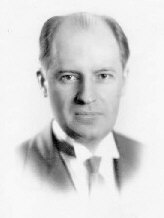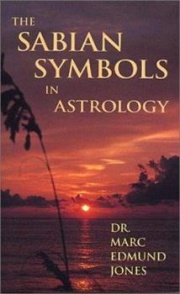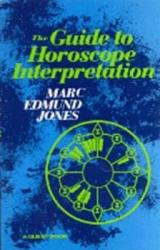Marc Edmund Jones: Difference between revisions
| Line 14: | Line 14: | ||
== Fiction and screenwriting == | == Fiction and screenwriting == | ||
Jones worked in the early days of Hollywood filmmaking as highly regarded screenwriter, or "photoplaywright." He wrote original stories and adapted novels into "scenarios" for silent films. He was honored by his peers at a banquet of the New Orleans Inquest Club in 1913: | Jones worked in the early days of Hollywood filmmaking as highly regarded screenwriter, or "photoplaywright," and was described as "one of the cleverest scenario writers and movie picture experts in the country."<ref>"To Write Scenario" ''Washington Bee'' (January 12, 1918), 1.</ref> He wrote original stories and adapted novels into "scenarios" for silent films. During the silent film era, writers were present during production of the film, because the process was very improvisational. When writing episodes of the ''Runaway Jane'' series, Jones was with the Reliance production company as they traveled to Bermuda: | ||
<blockquote> | |||
Marc Edmund Jones will work into his scenarios every interesting feature of the island and diving and submarine scenes will also be completed before the Runaways run back to New York.<ref>"'Runaway June' runs to balmy Bermuda" ''Bridgeton Evening News (Feburary 9, 1915), 5.</ref> | |||
</blockquote> | |||
He was honored by his peers at a banquet of the New Orleans Inquest Club in 1913: | |||
<blockquote> | <blockquote> | ||
| Line 20: | Line 25: | ||
</blockquote> | </blockquote> | ||
These are some of the films he wrote: | |||
* ''In the Firelight'', 1914. | * ''In the Firelight'', 1914. | ||
| Line 27: | Line 32: | ||
* ''The Cowardly Way'', 1915 - on suicide. | * ''The Cowardly Way'', 1915 - on suicide. | ||
* ''Fate and the Fugitive'', 1915 - a man is falsely accused for the crimes of a double. | * ''Fate and the Fugitive'', 1915 - a man is falsely accused for the crimes of a double. | ||
* ''Runaway June'', 1915 - Jones adapted a screenplay from a George Randolph Chester novel. The film was presented as 15 weekly episodes | * ''Runaway June'', 1915 - Jones adapted a screenplay from a George Randolph Chester novel. The film was presented as 15 weekly episodes of one or two reels each. | ||
* ''Skin Deep'', 1922 - produced by Thomas H. Ince, was based on Jones' novel "Lucky Damage." | * ''Skin Deep'', 1922 - produced by Thomas H. Ince, was based on Jones' novel "Lucky Damage." | ||
Revision as of 14:36, 10 March 2021
ARTICLE UNDER CONSTRUCTION
ARTICLE UNDER CONSTRUCTION
Marc Edmund Jones was an American Theosophist, writer, and lecturer. He has been called "the dean of American astrology."
Personal life
Marc Edmund Jones was born in St. Louis on October 1, 1888.
He died on March 5, 1980, at the age of 91.
Fiction and screenwriting
Jones worked in the early days of Hollywood filmmaking as highly regarded screenwriter, or "photoplaywright," and was described as "one of the cleverest scenario writers and movie picture experts in the country."[1] He wrote original stories and adapted novels into "scenarios" for silent films. During the silent film era, writers were present during production of the film, because the process was very improvisational. When writing episodes of the Runaway Jane series, Jones was with the Reliance production company as they traveled to Bermuda:
Marc Edmund Jones will work into his scenarios every interesting feature of the island and diving and submarine scenes will also be completed before the Runaways run back to New York.[2]
He was honored by his peers at a banquet of the New Orleans Inquest Club in 1913:
Mr. Jones is one of the best-known photoplaywrights in the country, and is the author of many screen successes. He will remain in the city until the month of March, and it is the intention of the local writers to extend him a hearty welcome. The banquet, which promises to be a swell affair, will be given at Fabacher's Rathskeller.[3]
These are some of the films he wrote:
- In the Firelight, 1914.
- In the Moonlight, 1914.
- In the Daylight, 1914.
- The Cowardly Way, 1915 - on suicide.
- Fate and the Fugitive, 1915 - a man is falsely accused for the crimes of a double.
- Runaway June, 1915 - Jones adapted a screenplay from a George Randolph Chester novel. The film was presented as 15 weekly episodes of one or two reels each.
- Skin Deep, 1922 - produced by Thomas H. Ince, was based on Jones' novel "Lucky Damage."
Astrological work
Theosophical Society involvement
Jones was admitted as a member of the Theosophical Society on January 13, 1941. He joined in his home town of St. Louis, where the lodge was for a few years affiliated directly with the international headquarters rather than with the Theosophical Society in America. The President of the St. Louis Lodge was the industrialist Charles Luntz, who was an excellent teacher of astrology and editor of a Theosphical magazine called Ancient Wisdom. Later Jones was active with TSA lodges in Columbus, Ohio and Seattle, Washington, and he remained a member until his death in 1980. His wife, Priscilla, was also a member from June 30, 1951 until her death in 1976.
Dr. Jones was much in demand as a lecturer in Theosophical lodges all over the United States, especially from 1948-1959. He spoke in Los Angeles, San Francisco, Detroit, Philadelphia, Miami, Washington, San Antonio, Wilmington, and many other cities. He conducted a workshop at Camp Indralaya, a Theosophical retreat center near Seattle. In 1976, at the age of 88, he lectured at the Society's national headquarters in Wheaton, Illinois. The topics of his lodge lectures were usually related to Theosophy, astrology, religion, history, and culture. Some of the titles are:
- "Theosophical Perspectives on Astrology"
- "Unrealized Christian Factors in Theosophy"
- "The Meaning of Eastern Teachings in the Western World Today"
- "The Crazy Quilt of History and Some Answers Theosophy Provides"
- "The Mother Principle of God"
- "Theosophy and the Feminization of Our Culture"
- "The New Look in Mundane Astrology"
- "The Cabala and Today's Crisis"
- "The Astrology of Initiation"
One of Jones' final books, How To Live With The Stars, was published by the Theosophical Publishing House in 1975.
Writings
The Union Index of Theosophical Periodicals lists eleven articles about Jones. Most are book reviews.
Jones wrote at least 20 books, listed here in alphabetical sequence:
- Astrology: How & Why It Works. Philadelphia: David McKay Co., 1945.
- The Counseling Manual In Astrology.
- Essentials Of Astrological Analysis.
- Fundamentals Of Number Significance.
- Gandhi Lives. Philadelphia: David Mackay Co., 1948/??
- George Sylvester Morris: Philosophical Career & Theistic Idealism. Philadelphia: David Mackay Co.,
- The Guide To Horoscope Interpretation. Philadelphia: David McKay Co., 1941. Quest Books released a miniature version in 1975.
- Horary Astrology.
- How To Learn Astrology. Philadelphia: David McKay Co., 1941.
- How To Live With The Stars. Wheaton, IL: Theosophical Publishing House, 1975.
- Man, Magic And Fantasy.
- The Marc Edmund Jones 500.
- Mundane Perspectives In Astrology.
- Occult Philosophy.
- Patterns Of Consciousness: The Ibn Gabirol Squares,
- The Sabian Book Of Letters To Aspirants.
- The Sabian Manual: A Ritual For Living.
- The Sabian Symbols In Astrology. New York: Sabian Publishing Society, 1953.
- Scope Of Astrological Prediction.
- Ten Words Of Power.
Additional resources
Books
- Carnarius, Stan. ‘’Marc Edmund Jones: A Biography’’. Infinity Publishing (2014)
- Holden, James H., and Robert A. Hughes. Astrological Pioneers of America. Tempe, AZ: American Federation of Astrologers, 1988.
Audio
- Rectifying the Work of Marc Edmund Jones” podcast by Chris Flisher. Also available on YouTube.
Websites
- An Exchange of Letters with Marc Edmund Jones and Dane Rudhyar.
- Marc Edmund Jones natal horoscope at AstrologyChart.eu.
- Marc Edmund Jones Birth Chart at astro-seek.com.
- Marc Edmund Jones as a Fortean blog posting by Joshua Blu Buhs at From an Oblique Angle Blog. 9/2/2014.
- Marc Edmund Jones and The Sabian Symbols Facebook page.


